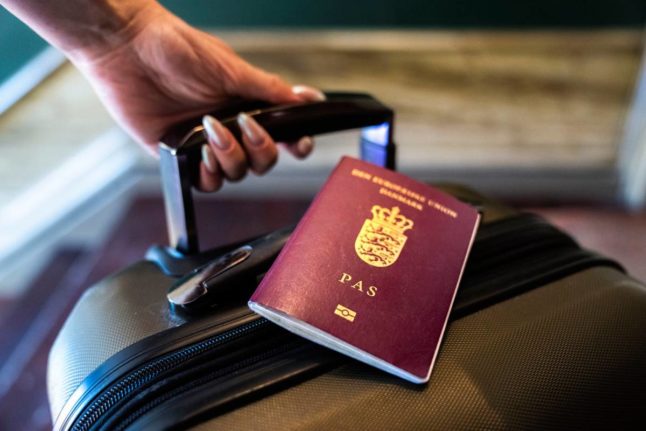The party emphasised Friday that it does not want any more citizenships to be handed out by the country until a cap on numbers is introduced.
“We will not vote for and participate in the continued dissolution of Denmark,” citizenship spokesperson Christian Langballe told news agency Ritzau after the party last month surprised the government by voting in parliament against the granting of citizenship to 2,710 applicants.
In voting against the citizenship, DF also stepped back from an agreement on citizenship rules that it entered into with other parties in 2015.
DF voted again Friday in opposition to awarding citizenships to applicants that fulfilled the legal requirements it helped to set, reports Ritzau.
READ ALSO: Dual citizenship 'a mess': Danish People’s Party
Other parties expressed at DF’s decision to vote against its own agreement after the first vote in May.
“DF was part of the agreement we made on criteria for Danish citizenship. We made the conditions quite considerably stricter,” citizenship spokesperson Jan E. Jørgensen of the governing Venstre (Liberal) party told Ritzau.
The citizenship agreement allows parliament to grant citizenships twice yearly via a special law, since legal process must be required in Denmark for citizenship to be awarded.
DF has previously tried to set a limit of 1,000 to the number of citizenships that can be awarded.
Proposal L189, which would have awarded the citizenships in May, was voted against by the party, with Langballe saying that it had voted “against its will” in passing previous citizenship proposals.
The party refused to continue participating in the “political theatre” regarding the issue, Langballe said.
Social Liberal (Radikale Venstre) spokesperson on citizenship, Lotte Rod, criticised DF for creating unfair uncertainty for applicants for Danish nationality.
“The rules for citizenship are already unfairly strict, because they prioritise people with high levels of education over workers. The Social Liberals think that all individuals should be given a chance regardless of education,” Rod told Ritzau via a written statement.
News agency Ritzau reported Friday that DF now demands either to get its desired limit of 1,000 citizenships per year or something equivalent.
“If [minister for immigration Inger Støjberg] can come up with something with the same effect, that will be fine with us. But that’s what we expect. And until our expectations our met, we cannot vote yes,” Langballe said.
Of the 2,710 individuals included in the proposal to grant citizenship, 2,139 are adults and 571 children.
DF’s ‘no’ vote to the citizenships did not prevent the proposal from being passed, since all other parties in the Danish parliament voted in favour of it.
READ ALSO: Danish People’s Party wants barbed wire fence on Germany border



 Please whitelist us to continue reading.
Please whitelist us to continue reading.